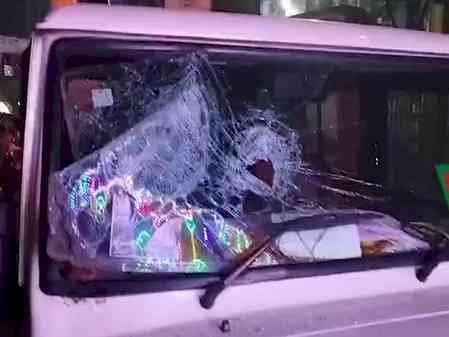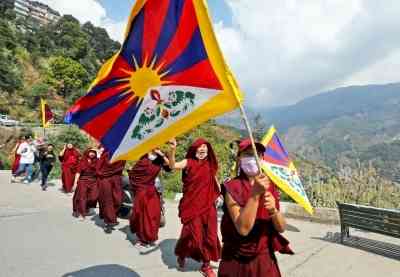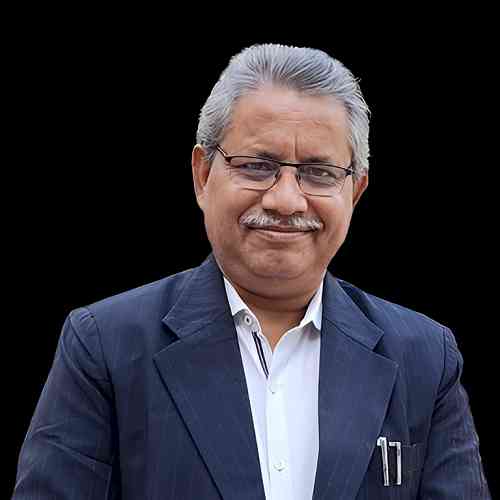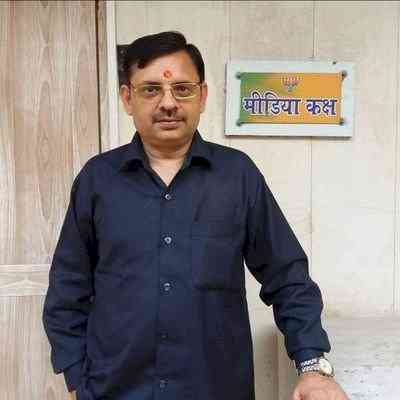Illegal trade, drugs peddling among key challenges in Tripura's bordering areas with B'desh: BSF
Top Border Security Force (BSF) officials on Monday said that cross-border illegal trade, infiltration and exfiltration, drugs peddling are the "biggest challenge" in the Tripura section of India-Bangladesh international border.
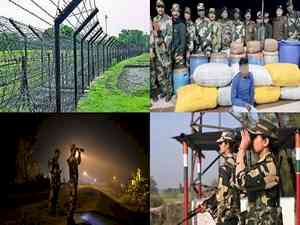
Agartala, April 23 (IANS) Top Border Security Force (BSF) officials on Monday said that cross-border illegal trade, infiltration and exfiltration, drugs peddling are the "biggest challenge" in the Tripura section of India-Bangladesh international border.
BSF's Tripura frontier Inspector General (IG) Patel Piyush Purusottam Das said that since January last year and until April 15 this year various drugs, gold, and cattle worth Rs 94.56 crore have been seized from the state's border with Bangladesh.
The IG while talking to the media said that most parts of Tripura's 856-km border with Bangladesh are already fenced and only the remaining five patches in the border would be completed next year.
On the insurgency front, BSF has facilitated the surrender of 18 cadres of the outlawed insurgent outfit - National Liberation Front of Tripura (NLFT) in the last one year.
Noting illegal infiltration and exfiltration are among the biggest challenges to the BSF, he said that 1,018 people including 498 Bangladeshi, 396 Indian nationals and 124 Rohingya were arrested from January last year to April this year.
The detention of people illegally crossing the border in Tripura has gone up significantly from the previous years as BSF detained 369 individuals, including 59 Rohingya, 160 Indian and 150 Bangladeshi nationals in 2022.
Das also said a group of touts living in both countries are facilitating infiltration and exfiltration and based on surveillance checks, the National Investigation Agency (NIA) and BSF apprehended 29 touts in November and December last year.
Some touts are, however, still left and the BSF authorities are keeping an eye out on them, IG Das said.
Due to provisions of the 1971 Indira-Mujib Pact and Indo-Bangladesh Border Agreement signed in 1975 between BSF and the then Bangladesh Rifles (now Border Guards of Bangladesh), there is no 'No Man's Land' in the Indo-Bangla international border.
Instead, barbed wire fences were erected by India and border pillars were set up by Bangladesh at 150 yards distance from the zero line as per India-Bangladesh Border Agreement.
On the issue, the BSF official said while there were gaps in barbed fencing in different areas, the remaining unfenced patches would be closed with single-row fencing by next year.
As part of additional security arrangements, 503 cameras were installed on the border to enhance the border surveillance in most smuggling and infiltration-prone areas, he said.
The BSF official said that approximately 2,500 Indian villagers are still living on the other side of barbed wire fence (within Indian territory) in Tripura frontiers.
The BSF is always pursuing them to shift inside the fenced territory.
A few people were recently killed in clashes with the BSF troopers on duty along the India-Bangladesh border in Tripura.
On this issue, the BSF IG clarified that their jawans are issued non-lethal Pump Action Guns to prevent loss of life along the border.
However, if the BSF jawans are under attack or in serious danger, they have to resort to lethal weapons, indicating that smugglers had mounted an attack on BSF jawans in the cases involving fatalities, when the latter intercepted them and ordered them to halt.
--IANS
sc/pgh


 IANS
IANS 
